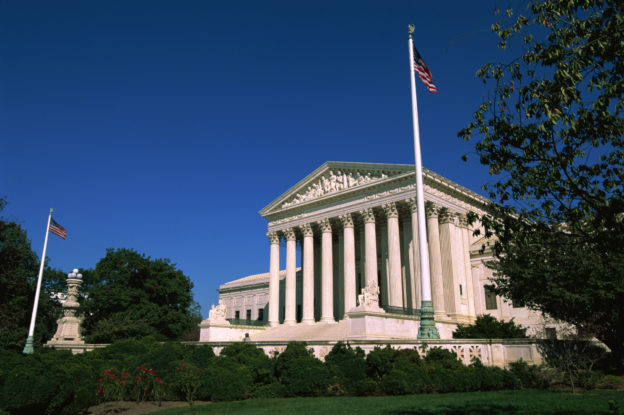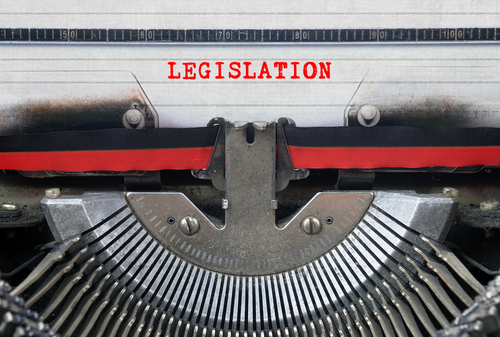Once a President nominates a candidate for a Senate-confirmed office, that person may not serve in an acting capacity for that office while awaiting Senate confirmation, pursuant to a ruling today by the U.S. Supreme Court. In a 6-to-2 decision, the Court ruled that Lafe Solomon, who had been appointed by President Obama to serve as acting general counsel for the National Labor Relations Board (NLRB) during a vacancy, could no longer serve in that acting role after the President later nominated him to fill the position outright.
NLRB General Counsel Appointment
The position of general counsel of the NLRB must be filled through an appointment by the President with the advice and consent of the Senate – a so-called “PAS” office. When a vacancy in a PAS office arises, the President is permitted to direct certain officials to serve in the vacant position temporarily in an acting capacity. Under the Federal Vacancies Reform Act of 1998 (FVRA), only three classes of government officials may become acting officers. The FVRA, however, prohibits certain persons from serving in an acting capacity once the President puts that person forward as the nominee to fill the position permanently.
In Lafe Solomon’s case, he was directed by President Obama in June 2010 to serve temporarily as the NLRB’s acting general counsel when the former general counsel resigned. Solomon had worked for ten years as the Director of the NLRB’s Office of Representation Appeals and was within the classes of officials who could be directed to serve in an acting capacity under the FVRA. In January 2011, President Obama nominated Solomon to serve as the NLRB’s general counsel on a permanent basis. Solomon continued to serve as acting general counsel for an additional two-plus years as the Senate failed to act on his nomination. In mid-2013, the President withdrew Solomon’s nomination, putting forward another candidate whom the Senate confirmed in late October 2013.
Company Facing ULP Argued Solomon Couldn’t Be Acting GC After Nomination
In January 2013, while Solomon was acting general counsel, SW General, Inc., a company that provides ambulance services, received a complaint alleging it committed an unfair labor practice (ULP) for failing to pay certain bonuses to employees. After an administrative law judge and the NLRB concluded that SW General had committed the ULP, the company argued in court that the complaint was invalid because Solomon could not legally perform the acting general counsel duties after the President had nominated him for the permanent position. The company pointed to wording in the FVRA restricting the ability of acting officers to serve after being nominated to hold the position permanently. Whether the FVRA prohibits all classes of acting officials or only first assistants who automatically assume acting duties from continuing to serve after nomination was the issue before the Supreme Court.
Once Nominated, Official Is No Longer Eligible To Serve In Acting Capacity
The Court ruled that once a person has been nominated for a vacant PAS office, he or she may not perform the duties of that office in an acting capacity. The Court rejected the NLRB’s position that the FVRA restricted only first assistants who were in an acting capacity, rather than restricting all classes of officials directed to serve in an acting capacity who are later nominated for the permanent position. In applying its ruling to Lafe Solomon, the Court ruled that Solomon’s continued service as the NLRB acting general counsel after he had been nominated to fill that position permanently violated the FVRA. NLRB v. SW General, Inc., ___ 580 U.S. ___ (2017).
Solomon’s Actions “Voidable”
So what does this mean for all of Solomon’s actions taken during the over two-year period in which Solomon improperly served as the acting general counsel after his nomination for the permanent position? For example, what happens to the ULP complaints filed by, or at Solomon’s direction, during that period?
The Court noted in a footnote that the FVRA exempts the general counsel of the NLRB from the general rule that actions taken in violation of the FVRA are void ab initio (i.e. from the beginning). The Court of Appeals had ruled that Solomon’s actions during that period were “voidable.” Because the NLRB did not appeal that part of the lower appellate court’s ruling, it was not before the Supreme Court to decide. Consequently, the Court of Appeals’ decision that Solomon’s actions are voidable stands. Accordingly, each action taken by Solomon during the time that he improperly served as acting general counsel would need to be challenged on an individual basis.


 By
By 
 By
By 
